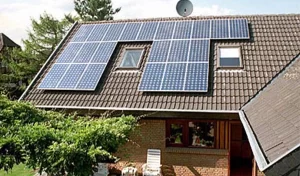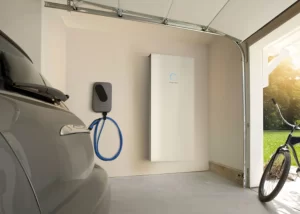Energy Independence: How to Choose the Right Battery-Powered Generator for Your Needs
What is a Battery-Powered Generator?
A battery-powered generator is an advanced solution designed to provide reliable power without the emissions and noise associated with traditional gasoline generators. These systems rely on rechargeable batteries to store and deliver power, offering a cleaner, quieter alternative. They are particularly useful for applications requiring mobility and efficiency, such as camping, emergency backup, and off-grid living.

Key Benefits of Battery-Powered Generators
1. Emissions-Free Operation
One of the standout features of battery-powered generators is their emissions-free operation. Unlike gasoline generators that produce harmful fumes, these generators run silently and cleanly, making them suitable for indoor use and ideal for environmentally conscious users.
2. Enhanced Efficiency with MPPT Solar Pump Inverters
Battery-powered generators can be paired with MPPT (Maximum Power Point Tracking) solar pump inverters to optimize energy use. MPPT technology ensures that your solar panels operate at their maximum efficiency, capturing the most solar energy available and converting it into usable power. This integration maximizes the efficiency of your renewable energy system, providing a reliable and sustainable power source.
3. Versatility with Portable Power Stations
Portable power stations, a type of battery-powered generator, offer versatility and convenience. These units come with various outlets, including standard 120V AC, USB ports, and DC chargers, allowing you to power a range of devices from smartphones to small appliances. Many models also feature solar panel compatibility, extending their runtime and enhancing their functionality.
4. Reliable Power Delivery and Charging
Battery-powered generators excel in power delivery and charging capabilities. With advancements in technology, modern generators provide consistent and stable power, essential for running sensitive electronics and appliances. Quick and efficient charging ensures that your battery-powered generator is ready for use when needed, whether you’re charging it via a standard outlet or integrating it with solar panels.
5. Rechargeable Batteries for Long-Term Savings
Investing in a battery-powered generator with high-quality rechargeable batteries can lead to long-term savings. These batteries offer numerous charge cycles and reduced maintenance compared to traditional fuel-based generators. Additionally, many models come with features that allow for easy recharging, whether through standard electrical outlets or solar panels.
Choosing the Right Battery-Powered Generator
1. Assess Your Power Needs
Before purchasing a battery-powered generator, evaluate your power requirements. Consider the types of devices and appliances you plan to power, their energy consumption, and how long you need them to run. This assessment will help you select a generator with the appropriate capacity and features.
2. Compatibility with Solar Panels
If you plan to use solar panels with your battery-powered generator, ensure compatibility between the two systems. Look for generators that support solar panel integration and feature MPPT technology for optimal energy capture and conversion.
3. Consider Efficiency and Run Time
Efficiency is crucial for battery-powered generators. Choose a model known for its high efficiency and long run time, ensuring that it meets your energy needs without frequent recharging. Compare different models and their performance in real-world scenarios to make an informed decision.
4. Evaluate Additional Features
Consider additional features such as power delivery options, ease of charging, and portability. Some generators offer built-in solar charging capabilities, LED displays for real-time monitoring, and various outlet types for greater flexibility.
5. Review Emissions and Noise Levels
One of the advantages of battery-powered generators is their low noise and emissions levels. Choose a model that provides quiet operation and is suitable for indoor use or in noise-sensitive environments.
Choosing the right battery-powered generator involves understanding your power needs, evaluating efficiency, and considering compatibility with solar panels and other energy sources. By focusing on key features such as MPPT solar pump inverters, rechargeable batteries, and emissions-free operation, you can select a generator that provides reliable, clean, and efficient power. Whether for emergency backup, off-grid living, or daily use, a battery-powered generator can enhance your energy independence and sustainability.
Contact us
- Email:[email protected]
- Tel: +86 13651638099
- Address: 333 Fengcun Road, Fengxian District, Shanghai
Get A Quote Now!
Related product links are available directly
Site storage products:Site storage products 归档 – (energystoragecontainer.com)
Lithium Battery:Lithium Battery 归档 – (energystoragecontainer.com)
Read more

How to Choose Outdoor Mobile Power Supply Correctly?
Outdoor portable power stations are indispensable for camping, road trips, and emergencies, ensuring a reliable energy source for devices and appliances.

Solar Revolution: How Home Systems Can Light Up Ecuador’s Energy Future
Ecuador’s energy crisis, driven by its worst drought in 61 years, has revealed the vulnerabilities of a hydropower-dependent energy system. With water levels at hydropower stations plummeting and energy shortages reaching 1080 megawatts, the nation faces significant economic and social challenges.

Lighting up the Future: How Home Inverter Energy Storage Illuminates Ecuador’s Energy Darkness
Ecuador is facing a severe electricity crisis, driven by historic drought conditions that have crippled the nation’s hydroelectric capacity, which accounts for over 70% of its energy supply.

New Power of Smart Home: Three Major Life Improvement Advantages of Photovoltaic Energy Storage System
With the rapid adoption of solar battery storage technology, the concept of a whole house intelligent photovoltaic energy storage system is becoming increasingly relevant in modern households.
